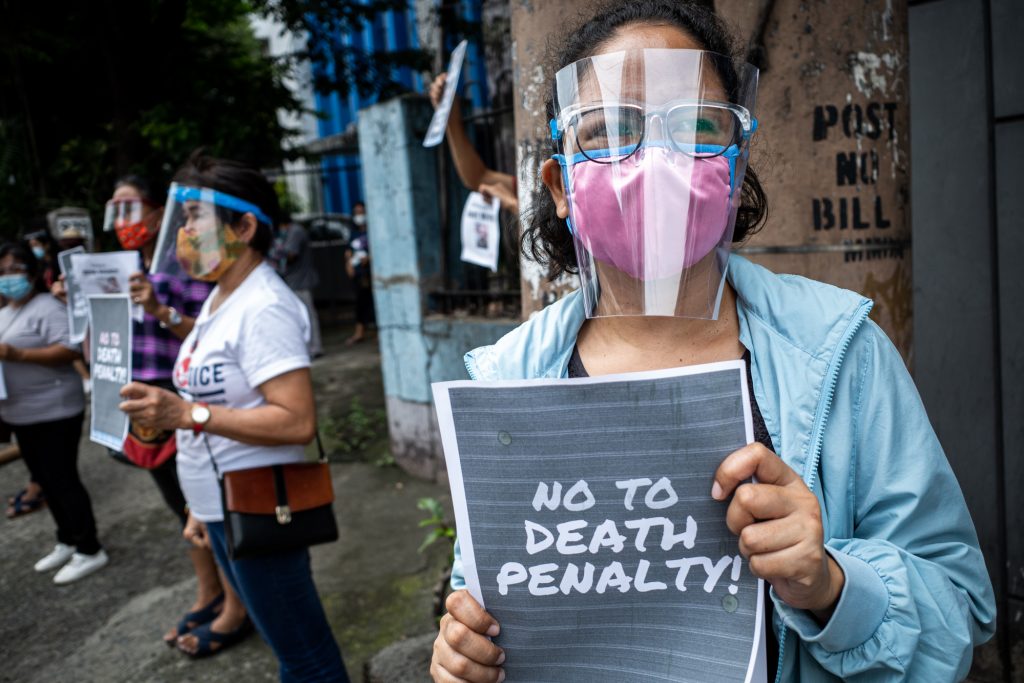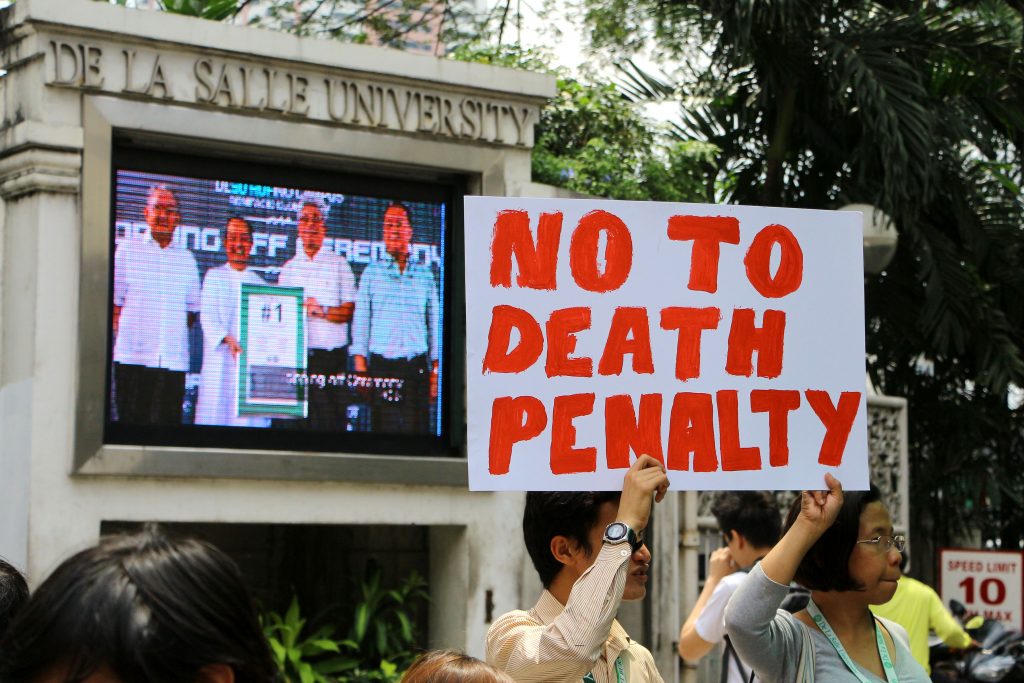
Philippine Church leaders hit calls for the revival of capital punishment in the country following the killing of a mother and her son by a police officer this week.
The religious leaders maintained that the revival of the death penalty “will not resolve the faults” in the country’s justice system.
Father Antonio Labiao, executive secretary of Caritas Philippines, said his office stands by the “old and true mandate of the Church” that “life is sacred and no one has the right to take it, even if that life belongs to a criminal.”
The priest said reviving the death penalty will not answer the “faulty justice system” and it “will not deter individuals from inflicting harm to others.”
“What we need is a more compassionate environment where our children can grow up loved, cared for, and accepted,” he said.
Father Labiao reminded those who are calling for the reimposition of the death penalty that “legally taking out one’s life is still murder.”
Several legislators have called for the revival of capital punishment following the killing of Sonia Gregorio and her son, Frank, in Tarlac province on Sunday. The legislators said policemen who kill unarmed civilians “deserve the death penalty.”
Bills seeking the reinstitution of the death penalty are pending at the committee level of both Houses of Congress.
Bishop Gerardo Alminaza of San Carlos said the legislators calling for capital punishment are “barking on the wrong tree.”
He said that they must “check statistics” if capital punishment has significantly served as deterrent to crimes.
The bishop called on the government to “instead focus” its attention on improving the country’s justice system, “improve the standard of living, and provide quality education.”
He said the Church has provided arguments against the death penalty, such as “the possibility of judicial error.”
The bishop said capital punishment can also be used by “totalitarian and dictatorial regimes as a means of suppressing political dissidence.”

Bishop Jose Elmer Mangalinao of Bayombong said the answer to the spate of extrajudicial killings and the culture of impunity in the country is not the revival of the death penalty but the “full and just implementation of laws.”
The prelate said there is a need for “continuous education, training, and formation of the police force,” adding that the government must “inculcate” in the minds and hearts of state security forces “the sacredness of life and human rights.”
On June 24, 2006, the Philippines abolished capital punishment.
Months before the passage of the law that ended the imposition of the death penalty, former president Gloria Arroyo issued a moratorium on carrying out capital punishment.
In April 2006, the Philippines commuted the sentences of some 1,230 death row inmates to life imprisonment – the largest ever commutation of death sentences, according to Amnesty International.
In his State of the Nation Address in July, President Rodrigo Duterte asked Congress to pass a bill that will reinstate the death penalty by lethal injection for drug-related crimes.
Pope Francis, in his later encyclical titled “Fratelli tutti,” said the “death penalty is inadmissible and the Church is firmly committed to calling for its abolition worldwide.”
Source: Licas Philippines
0 Comments